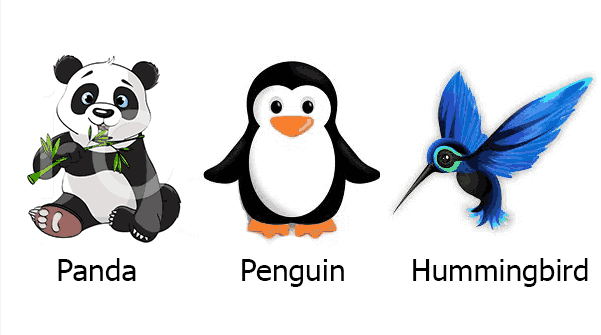
There are rollouts of Google algorithms every month, sometimes twice in a month. Most of them are not really new algorithms but updates on previous versions. You should note here that these algorithms and their updates are the ones which are made public knowledge! There may be numerous others happening under the surface which are not monumental or even discernible on a shallow level. However, as digital marketing or search engine enthusiasts, there are 3 epic Google algorithms that you should know about, and what they made to this industry.
- Panda: This one was launched before the others, way back on Feb 24, 2011. There are monthly updates to this algorithm, so it’s very much relevant today and in the future. The primary objective of this algorithm is to throw out websites from search results pages (SERPs) which have poor and low quality of content. By low quality, we mean spammy or duplicate content, along with thin content. Keyword stuffed pages or ones with unsatisfactory user experience come under the scanner of Panda.
- Penguin: Next up on the epic algorithm list is the Penguin. This was launched on April 24, 2012. Here too, the updates are frequent, if not as regularly as the Panda updates. The goal of this algorithm is different from Panda. Penguin targets websites which have spammy links or links that mislead and manipulate users into clicking where they would otherwise not click. Such sites are de-ranked and set aside by Penguin. From the latter half of 2016, the updates happen in real time, ensuring that penalties on offending sites are clamped quicker and you will have to make greater efforts to recover from Google imposed ignominy.
- Hummingbird: Though there was a minor algorithm (Pirate) in the period between Penguin and Hummingbird, it was not that epoch making because it was only about copyright infringement and the last update was in Oct., 2014. The Hummingbird algorithm makes a far reaching impact because it reflects the vision of Google like nothing else. Google wants search queries to precisely reflect the user’s query, with the intention and purpose firmly in place. That is what Hummingbird looks at: does your website material offer relevant content by identifying the intent behind a searcher’s query? If the answer is yes, your website is sure to pass the Hummingbird test. This algorithm makes search queries more than just bland keywords.
How to cope up with Google Search Updates?

As you can understand, if you follow the best practices of SEO, you are not going end up on the wrong side of Google’s algorithms. Otherwise, your website will pay the price, today or tomorrow.


0 responses on "Top 3 Google Algorithms You Should Know About"